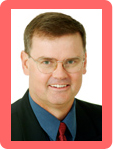 |
As part of our monthly segment, Our Community Leaders - Great Australian Leaders in Focus
which features the thoughts of some of Australia's great leaders,
this month we feature, Cavaye Community Development Dr Jim
Cavaye.
Dr Jim Cavaye
Jim is an accomplished practitioner, educator and researcher in
community development with 20 years experience working with rural
and regional communities and a Ph.D. in community development.
|
Our Community: Who do you consider to
be a great leader of our time? Why?
Dr Jim Cavaye:
- Martin Luther King - he was able to articulate the basic needs of
a whole people and showed enormous courage in doing so.
- Mohammed Yunus, Founder of the Grameen Bank - he linked economic
independence with community values and personal development and empowered
the poor, particularly women.
- Tony Blair - he created a bold vision for Britain and worked across
divisions to orient government to help communities make change.
Our Community: What are the three attributes
you would consider to be essential to a leader? And why?
Dr Jim Cavaye:
- Understanding - the first step in fostering change is to understand
how things are. Leaders must also have compassion and understand the
situation, views and reactions of people.
- Developing shared leadership - the best leaders are those that foster
the leadership that we all have. They help people recognise their own
assets rather than deficits and develop communities that have leadership
rather than those that are led.
- Persistence - leaders have stamina and tenacity not only to cope
with adversity and disappointments. They also follow through on changes
in communities that, because of their complexity and difficulty, naturally
take a long time.
Our Community: What are the barriers
to new leaders emerging in Australia?
Dr Jim Cavaye:
- Self-deprecation - It is one thing to be humble but in Australia ,
I see a lot of self-depreciation at the personal and community level.
A parallel "drought" in regional Australia is that of confidence.
- The distortion of profile - having "profile" is important to having
influence and some wonderful shared leaders have developed a strong
profile. However, our focus on personal "celebrity" has meant that some
people with profile are not leaders and some wonderful community leaders
are not recognised, limiting their influence.
- Making it happen - real leaders not only have an innovative idea
and develop others but they also make things happen "on the ground".
For leadership to emerge we need better ways for people to access support.
Our Community: What advice would you
give to a potential leader to take them to the next stage?
Dr Jim Cavaye:
Find a mentor. My life was touched by a wonderful mentor who was a sounding
board, a "coach" and frankly, an inspiration. Having people like this
with you gives leaders a "gyroscope" and the support to try new things
and think boldly.
- Have a go! - if you have an idea or a "dream", so often it remains
just that. Actually deciding to start something, and having a clear
plan, and taking the first step is often the key to big things happening.
Our Community: Nature / nurture - are
leaders born or bred?
Dr Jim Cavaye:
Born and bred - I believe that everyone has leadership in them.
That is, everyone has some vision, some persistence, some ability to work
with others, some courage. Some people have more than others but the true
nature of leadership is to bring out the leadership that is in others.
Often the natural leadership that we all have to various degrees is stifled
by circumstance, by us thinking we have no leadership and other people
are "leaders", and sometimes perceived "leaders" stifle leadership in
others. It is important for the natural leadership across communities
to be encouraged and fostered by making it easy for people to participate,
by equalising power in communities, by having functional organisations,
by respecting and valuing diversity and by supporting and encouraging
people at the personal level.
Our Community: What do you consider to
be the top three leadership issues facing the nation?
Dr Jim Cavaye:
Reconciliation - Despite Mabo, native title and the reconciliation movement,
we still have a long way to go. Reconciliation needs to reach the level
of mainstream Australia appreciating Aboriginal people, understanding
their situation, institutional change and access to land, and the development
of personal friendship and "rubbing shoulders" between black and white
people. Developing this fundamental understanding and trust is a crucial
leadership challenge.
- Reinventing Local Government - local government is in the best position
to foster vibrant communities and social change at the grassroots level.
Many local governments consist of genuine community representatives
and dedicated staff. However, many local governments focus on cost minimisation
and see their role only as infrastructure and social service provision,
rather than as also fostering leadership and entrepreneurship in their
communities. Achieving this double role - service provision and community
strengthening - at the same time, with limited funds, is a critical
leadership challenge.
Our Community: What insights
have you gained personally on your leadership journey?
Dr Jim Cavaye:
I have come to appreciate that my strong suite is having what I think
are great ideas, but there has been ample evidence of not being able to
follow through and focus on solid outcomes. It is something I am trying
hard to balance.
Our Community: Who have
been your own leadership mentors and how did they assist in developing
your own leadership style?
Dr Jim Cavaye:
My mentor was Ron Shaffer, my university professor and the Director of
the Centre for Community Economic Development in the US . His most powerful
influence was that he believed in me and offered unconditional support.
He also struggled and suffered through terminal illness and his example
of humility and dignity is his greatest lesson.
Published February 2007
|

